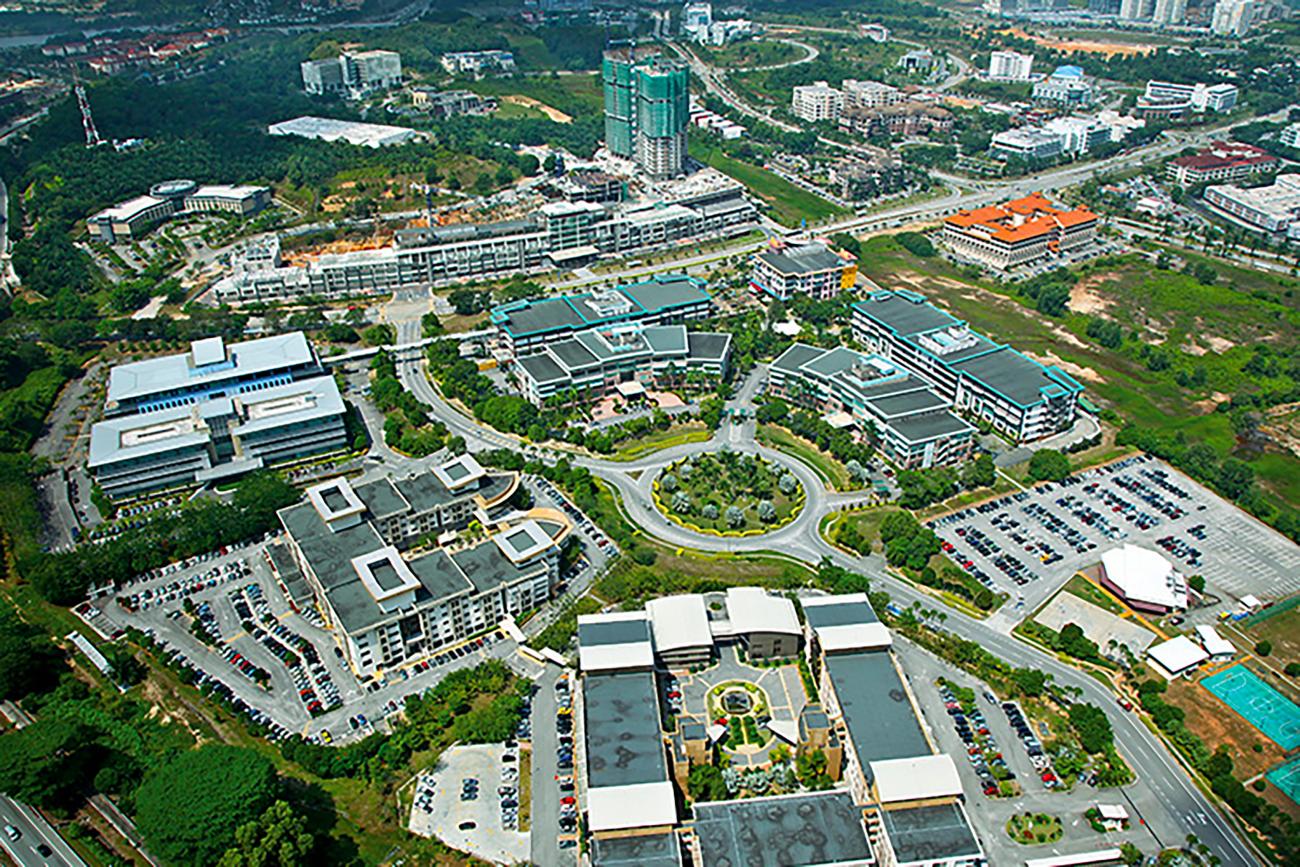International experts gather for CCA’s study consultation on ‘Artificial Intelligence and Posthumanism: Ethical and Theological Perspectives’

An aerial view of the Cyberjaya cityscape, near Kuala Lumpur, Malaysia, the site of the upcoming CCA consultation.
Chiang Mai, Thailand: A selected group of international experts in Artificial Intelligence will meet with theologians, social scientists, ethicists, and medical professionals for a four-day study consultation from 1 to 4 October 2025 in Cyberjaya, Malaysia’s first smart city, located near Kuala Lumpur.
Organised by the Christian Conference of Asia (CCA), the study consultation on ‘Artificial Intelligence and Posthumanism: Ethical and Theological Perspectives’ aims to discuss and examine the ethical, social, and theological implications of emerging technologies, including humanoid robotics, as well as posthumanism and transhumanism, and their impact on Christian mission and witness.
Explaining the expected outcome of the consultation, CCA General Secretary Dr Mathews George Chunakara stated, “In a fast-changing world, Artificial Intelligence has been transpiring and reshaping societies with rapid advancement, introducing both advantages and challenges. In such a context, it is important for the adherents of faith communities to understand, discern, and reflect on the impacts and relevance of AI through the lens of their belief, social, ethical, and theological values.”
“The Cyberjaya consultation, in this context, will be an effort of CCA to provide a space for understanding the pros and cons of AI and to help the Asian churches navigate AI’s impact with wisdom and discernment”, further explained the CCA General Secretary.
About 40 selected delegates from across Asia and beyond, including experts, professionals, and scholars in science and technology, ethics, law, theology, missiology, social science, medical science, and education, will attend the consultation, which is limited to invited participants only.
The resource speakers at the consultation include: Hong Kong Baptist University Professor Dr Levi Checketts (USA); defence research scientist Dr Latha Christie (India); robotics technology expert and academician Prof. Dr Takeshi Kimura (Japan); theological educator Fr Justin Nnaemeka Onyeukaziri CSSp (Taiwan/Nigeria); theologian and AI researcher Rev. Dr Yong Sup Song (South Korea); Roman Catholic theologian Fr Rajesh Kavalackal CMI (India); theological educator Prof. Dr Kelvin Chong Chun-ming (Singapore); theologian and posthumanism and nanotechnology researcher Rev. Dr John G Mathews (India); professor of Daejeon Theological University Rev. Dr Yoon Tae Kim (South Korea); President of the Graduate School of Theology Rev. Dr Bernard Wong Kwok Wai (Hong Kong); cultural anthropologist and senior research fellow Dr Erica M. Larson (USA); researcher and training instructor Dr Leonard Chrysostomos Epafras (Indonesia); computer scientist Prof. Joy M. Dy (The Philippines); legal academician Dr Manotar Tampubolon (Indonesia); medical science academician Dr Albertus Dimas Aji Putra (Indonesia); theological educator Dr Judy Berinai (Malaysia); cardiovascular practitioner Dr Jimmy Agung Pambudi (Indonesia); and Orthodox theologian Dr Zacharias Mar Aprem Metropolitan (India).
Thematic plenary presentation and theological reflection sessions will range from “Artificial Intelligence and Posthumanism: Changing Global Contexts and Trends”; “Artificial Intelligence in the context of Posthumanism and Transhumanism: Social and Ethical Implications”; “Artificial Intelligence in Healthcare: Challenges to the Health and Healing Ministry”; “Artificial Intelligence and Imago Dei”; “AI in Healthcare”; “Humanoid Robotics”; “Changing Cyberspace, and Impacts of AI on Mission among the Elderly and Senior Citizens, Mental Health and Neuroscience, Education”; “Faith and Science”; and “The Role of AI in Churches and Christian Witness in Asia”.
An on-site learning session and exposure visit to the Faculty of Artificial Intelligence and Engineering (FAIE) at Multimedia University (MMU), Cyberjaya, is also scheduled as part of the consultation.
The consultation will culminate in the preparation of a study document developed to guide churches in understanding and responding to the challenges of an increasingly AI-driven world.











